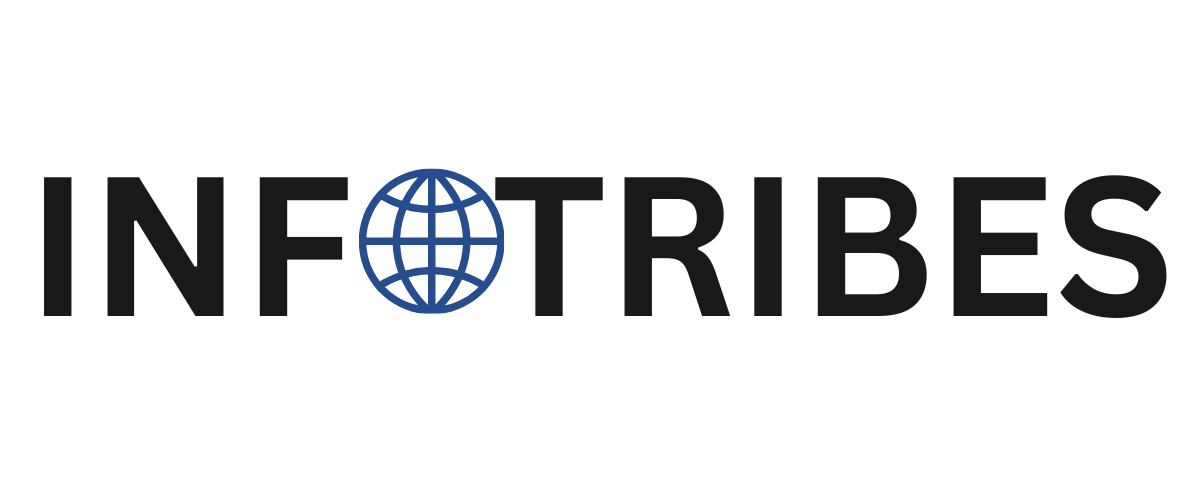AI Prompts Every European Accounting Student Should Know
Artificial Intelligence (AI) has become a transformative force across industries, and education is no exception. For accounting students in Europe, mastering AI tools and prompts is no longer optional—it’s a skill that enhances productivity, deepens understanding, and prepares them for a digital-first professional world. With the right AI prompts, students can streamline study routines, practice real-world accounting scenarios, and develop stronger analytical thinking.
This article explores the AI prompts every European accounting student should know, why they matter, and how to apply them effectively. By the end, you will have a practical toolkit of prompts designed to support both academic success and career readiness.
A Beginner’s Guide to AI Prompts for UK Law Interns
Why AI Prompts Matter for European Accounting Students
Accounting students face a unique blend of challenges: understanding financial principles, mastering complex tax regulations, and applying theoretical knowledge to practical business cases. AI, when guided by the right prompts, can bridge the gap between textbook learning and real-world problem-solving.
In Europe, where accounting practices vary across countries due to local tax laws and European Union directives, AI prompts for accounting students offer tailored guidance that textbooks often lack. Whether a student is preparing for exams, completing assignments, or practicing case studies, AI can deliver personalized, on-demand support.
100 ChatGPT Prompts For Accountants And Bookkeepers
The Role of AI in Modern Accounting Education
Before diving into the specific prompts, it’s important to understand how AI is shaping the academic landscape. Universities and professional bodies across Europe are gradually introducing AI tools into the learning process. These tools assist with:
- Study Efficiency: AI reduces time spent on repetitive research tasks.
- Concept Reinforcement: Prompts help explain topics in simpler terms or in multiple ways until the concept clicks.
- Practical Application: AI generates sample scenarios, enabling students to apply theory to practice.
- Exam Preparation: Tailored prompts simulate exam-style questions and answers.
By using AI prompts for accounting students, learners can turn AI from a general-purpose assistant into a specialized accounting tutor.
Essential AI Prompts for Accounting Students
The following sections outline specific AI prompts that European accounting students can integrate into their study routines. Each category includes examples to illustrate how prompts can be applied effectively.
1. AI Prompts for Understanding Accounting Basics
Students often struggle with introductory concepts like double-entry bookkeeping, accruals, and depreciation. AI can break these ideas into digestible explanations.
Sample Prompts:
- “Explain double-entry bookkeeping with an example relevant to a small European business.”
- “Describe the difference between accrual accounting and cash accounting, using an EU regulation perspective.”
- “Provide a step-by-step example of calculating depreciation for machinery under IFRS standards.”
These prompts make it easier to visualize core principles, ensuring that foundational knowledge is solid.
2. AI Prompts for Financial Reporting
Financial reporting is central to accounting studies, and European students must also be aware of International Financial Reporting Standards (IFRS). AI can clarify reporting standards and offer worked examples.
Sample Prompts:
- “Summarize IFRS 16 Leases in simple terms and give an example journal entry.”
- “Create a balance sheet for a fictional European company, including assets, liabilities, and equity.”
- “Explain how consolidated financial statements work, with a practical case of a parent and subsidiary company.”
By using these AI prompts for accounting students, learners can simulate the process of preparing financial statements with clarity and confidence.
3. AI Prompts for Taxation in Europe
Tax systems across Europe differ, making this a challenging area. AI can help students compare and understand taxation across jurisdictions.
Sample Prompts:
- “Compare corporate tax rates in Germany, France, and Spain, highlighting key differences.”
- “Explain VAT rules in the EU with an example of cross-border sales.”
- “Draft a simple case study showing how income tax is calculated for an employee in the UK versus the Netherlands.”
This approach gives students a clearer grasp of the diversity of European tax regulations and how they impact accounting practices.
4. AI Prompts for Auditing and Ethics
Auditing requires precision and ethical judgment, both of which can be practiced with AI-generated scenarios.
Sample Prompts:
- “Generate an example of an audit risk scenario for a European retail company.”
- “Explain the ethical principles of the International Federation of Accountants (IFAC) Code of Ethics.”
- “Create sample audit questions for internal controls in a manufacturing company.”
Through these prompts, students can role-play as auditors, preparing themselves for professional responsibilities.
5. AI Prompts for Exam Preparation
AI can simulate the experience of exams, providing practice questions and explanations to help students study smarter.
Sample Prompts:
- “Generate 10 multiple-choice questions on IFRS 15 Revenue Recognition with correct answers.”
- “Create a case study question on cash flow statements and provide the solution.”
- “Simulate a 1-hour mock exam on European taxation with detailed explanations.”
These prompts ensure students practice under exam-like conditions while benefiting from instant feedback.
6. AI Prompts for Real-World Scenarios
Accounting is not just theory—it’s about solving real business problems. AI can create scenarios that mimic the workplace.
Sample Prompts:
- “You are an accountant for a French SME; prepare a monthly financial summary for management.”
- “Draft an internal memo explaining the impact of Brexit on financial reporting for a UK-based firm.”
- “Provide a financial risk analysis for a European startup seeking investment.”
By engaging with such prompts, students prepare for internships and future professional roles.
7. AI Prompts for Research and Dissertation Support
Many European accounting students write dissertations or research papers. AI prompts can help refine ideas, create outlines, and even suggest sources.
Sample Prompts:
- “Suggest 10 dissertation topics on sustainability reporting in Europe.”
- “Create an outline for a paper on digital transformation in European accounting firms.”
- “Summarize recent academic literature on blockchain and accounting.”
With these prompts, students save time and improve the quality of their research output.
8. AI Prompts for Language and Communication Skills
Europe’s multilingual environment often requires accounting students to work in more than one language. AI can assist with translation, report drafting, and professional communication.
Sample Prompts:
- “Translate a financial report summary from English to German, keeping technical terms accurate.”
- “Draft a professional email to a client explaining a delay in financial statement preparation.”
- “Rewrite this audit report in simpler language for a non-accounting audience.”
This improves not only technical accuracy but also communication skills, which are vital in professional practice.
AI for Accountants: Practical Use Cases and Smarter Prompts
The Benefits of Using AI Prompts in Accounting Studies
The adoption of AI prompts is more than a convenience—it is a transformative way to learn. Some key benefits include:
- Personalized Learning: Students receive explanations tailored to their pace and background knowledge.
- Increased Productivity: AI minimizes time spent searching through textbooks or online resources.
- Practical Application: Students practice real-world accounting tasks, bridging theory and practice.
- Confidence Boost: Exam-style prompts help reduce anxiety and improve preparation.
- Adaptability: With prompts, students can focus on the unique aspects of European accounting systems.
Potential Limitations and Responsible Use
While AI prompts for accounting students are powerful tools, they are not without limitations.
- Overreliance: Students must avoid using AI as a shortcut and instead see it as a supplement.
- Accuracy: AI responses may not always be 100% accurate, especially with evolving tax laws or regulations.
- Ethics: Students should avoid academic dishonesty, such as submitting AI-generated work without proper citation.
The key lies in balance—AI is best used as a guide, not a replacement for independent thinking and study.
How European Universities Are Integrating AI
Universities in countries like Germany, the Netherlands, and the UK are already experimenting with AI in their accounting programs. Initiatives include:
- AI-powered learning platforms for financial reporting and auditing.
- Virtual accounting tutors that use prompts to guide students step by step.
- Research collaborations on AI in financial decision-making.
This signals a future where AI literacy will be as important as accounting literacy. Students who master AI prompts for accounting students will hold a competitive edge in both academics and careers.
A Practical Guide to Building Your Own AI Prompt Library
To maximize effectiveness, students should create a personal library of prompts. This can be organized by categories such as:
- Basic Principles: Bookkeeping, accounting cycles.
- Specialized Topics: IFRS, taxation, auditing.
- Skills Development: Research, communication, and report writing.
- Exam Practice: Mock questions, timed case studies.
Keeping a well-structured prompt library allows students to reuse, adapt, and refine their AI interactions throughout their academic journey.
The Future of AI in Accounting Education
Looking ahead, AI is expected to play an even greater role in accounting education across Europe. With advancements in generative AI and natural language processing, prompts will become more context-aware, delivering even more accurate and relevant responses. Students who invest in learning AI prompts for accounting students today will be better equipped for tomorrow’s dynamic professional environment.
The future accountant will not only know how to interpret numbers but also how to harness AI tools to generate insights, make predictions, and advise clients strategically.
Conclusion
Artificial Intelligence is reshaping the way accounting is taught and learned in Europe. By mastering the right prompts, students can transform AI into a powerful study partner, tutor, and career coach. From simplifying basic concepts to simulating real-world scenarios, AI prompts for accounting students provide clarity, confidence, and practical skills that textbooks alone cannot deliver.
As European accounting education evolves alongside digital transformation, the ability to use AI responsibly will become a key differentiator. Students who embrace these tools today will not only excel in exams but also stand out in the competitive job market of tomorrow. Ultimately, the future accountant is not just a numbers expert, but also a digitally fluent professional who knows how to use AI to add value.
The Rise of AI Companions: Are Virtual Friends the New Normal?
Frequently Asked Questions (FAQ)
Q1: Are AI prompts reliable for studying accounting?
AI prompts are highly useful for explanations, practice questions, and scenarios. However, students should always cross-check with textbooks, class notes, and official standards like IFRS, since AI tools may occasionally produce inaccuracies.
Q2: Can AI prompts replace traditional study methods?
No. AI prompts are best used as a supplement to lectures, textbooks, and professional guidance. They help save time and reinforce learning but cannot fully replace critical thinking and independent study.
Q3: How can AI prompts help with exam preparation?
AI can generate mock exams, multiple-choice questions, and case studies. Practicing with these prompts simulates real exam conditions, provides instant feedback, and highlights areas that need improvement.
Q4: Are AI prompts useful for research and dissertations?
Yes. AI prompts can suggest topics, create outlines, and summarize academic papers. However, students should always reference original sources to maintain academic integrity.
Q5: Do European universities encourage the use of AI tools?
Many universities are beginning to integrate AI into their curricula, especially in areas like financial reporting and auditing. While some institutions encourage responsible use, others may have restrictions, so students should check their university’s policy.
Q6: Can AI prompts assist with European tax laws and regulations?
AI prompts can help explain and compare tax systems across different European countries. However, since tax laws frequently change, it’s important to verify details with up-to-date official sources.
Q7: How can accounting students avoid overreliance on AI prompts?
Students should use AI prompts as a learning aid rather than a substitute for effort. Combining prompts with problem-solving practice, peer discussions, and guidance from lecturers ensures a balanced and independent approach.








One Comment